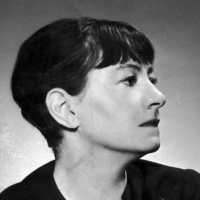Dorothy Parker

Dorothy Parker (born Dorothy Rothschild) (August 22, 1893 June 7, 1967) was an American writer and poet best known for her caustic wit, wisecracks, and sharp eye for 20th century urban foibles.
Born in West End, New Jersey, Parker first sold some poems to Vogue magazine in 1916 and worked there for a short while captioning fashion photographs, before beginning her career writing theatre criticism for Vanity Fair. She was initially employed as a stand-in for the vacationing Robert Benchley, and during this time she met and married Edwin Pond Parker II, whom she later divorced. She also had a torrid affair with the publisher Seward Collins. When Harold Ross founded The New Yorker she and Benchley, who became a close friend, joined its staff. Parker contributed many of her greatest short stories to the magazine, before pursuing a career as an independent writer of poems and short stories and making a name for herself as an acerbic wit. She married a young writer named Alan Campbell with whom she had a rocky relationship. However, they lived together on-and-off until his death in 1963.
Parker was a founding member of the noted Algonquin Round Table in New York. She published seven volumes of short stories and poetry, entitled ENOUGH ROPE, SUNSET GUN, LAMENTS FOR THE LIVING, DEATH AND TAXES, AFTER SUCH PLEASURES, NOT SO DEEP AS A WELL, and HERE LIES. After her death, the critic Brendan Gill noted that these titles "amounted to a capsule autobiography." Her most noted story was entitled BIG BLONDE, and was awarded the O. Henry Award as the most outstanding short story of 1929. After she left the staff of the New Yorker she continued to work as a reviewer; her acerbic book reviews, written for the magazine under the pseudonym "Constant Reader," were widely read and later published in a collection under that name. She worked as well as a playwright and screenwriter, often involved in "polishing" other people's scripts.
Politically liberal, she was investigated by the FBI for her suspected involvement in Communism during the McCarthy era and bequeathed the copyright to her work to the National Association for the Advancement of Colored People (NAACP).
Parker became famous for her short, viciously humorous poems, many about the perceived ludicrousness of her many (largely unsuccessful) romantic affairs and many others wistfully considering the appeal of suicide. She never considered these poems as her most important works.
She is also famous for her eminently quotable wisecracks, which were repeated by her literary friends and also appeared liberally throughout her works.
She attempted suicide several times in her life but in the end died of a heart attack. In her will, she bequeathed her estate to the Dr. Martin Luther King, Jr. foundation. Following King's death, her estate was passed on to the NAACP.
Her life was the subject of the 1987 film DOROTHY AND ALAN AT NORMA PLACE and the 1994 film MRS. PARKER AND THE VICIOUS CIRCLE, in which she was played by Jennifer Jason Leigh.
Publications
" Enough Rope (1926)
- Resume
- Men
- Unfortunate Coincidence
- Comment
" Sunset Gun (1927)
- On Being a Woman
" Close Harmony (1929) (play)
" Laments for the Living (1930)
" Death and Taxes (1931)
" After Such Pleasures (1933)
" Collected Poems: Not So Deep As A Well (1936)
" Here Lies (1939)
" Collected Stories (1942)
" Collected Poetry (1944)
" The Ladies of the Corridor (1953)
" Constant Reader (1970)
" A Month of Saturdays (1971)
" Not Much Fun: The Lost Poems of Dorothy Parker (2001)
From Wikipedia, the free Encyclopedia.





